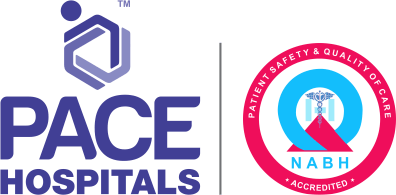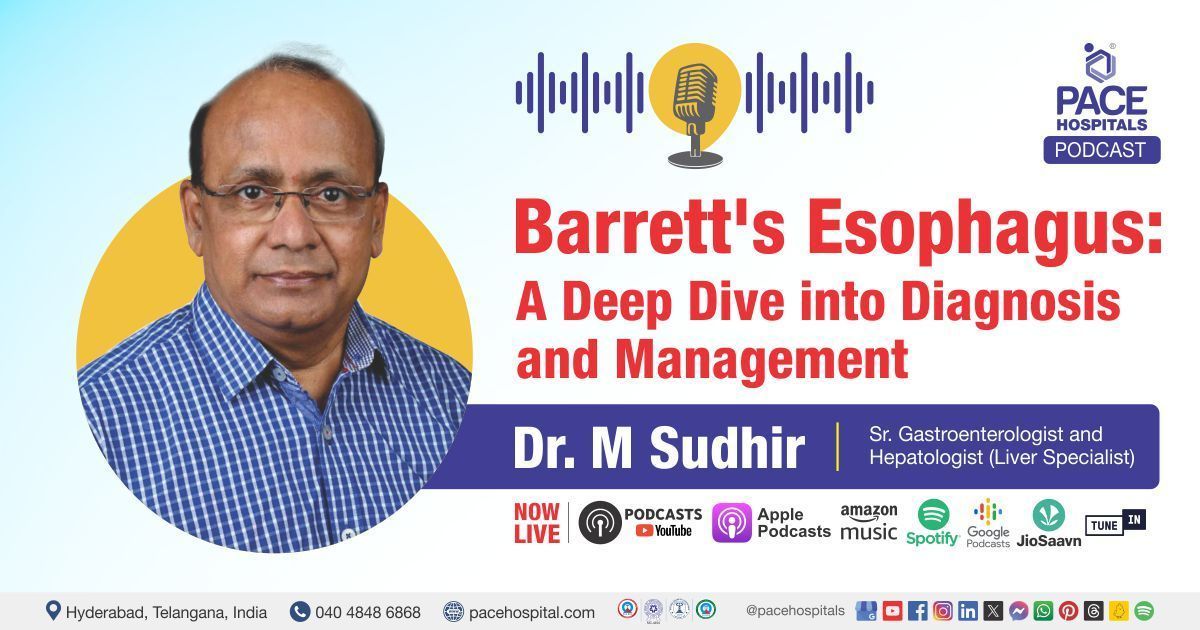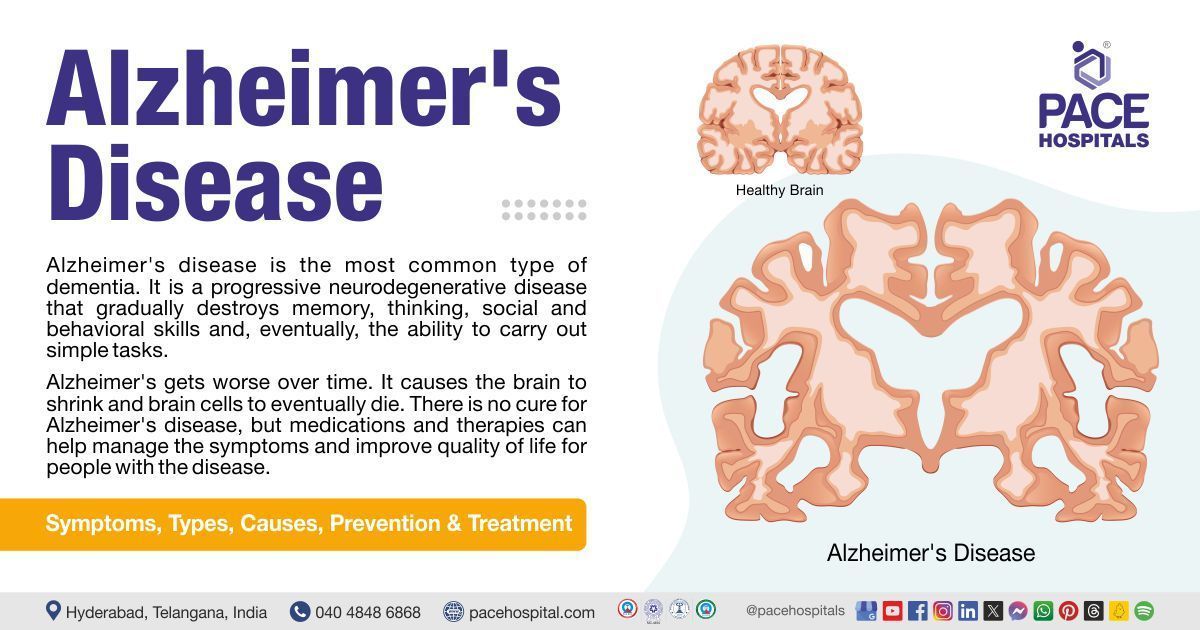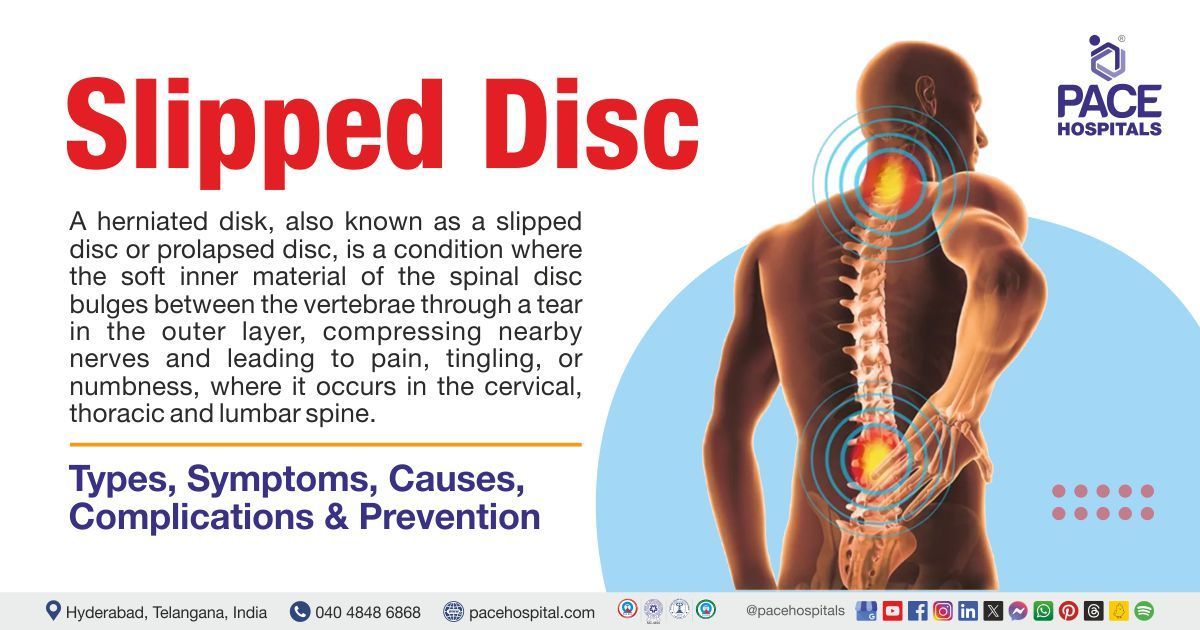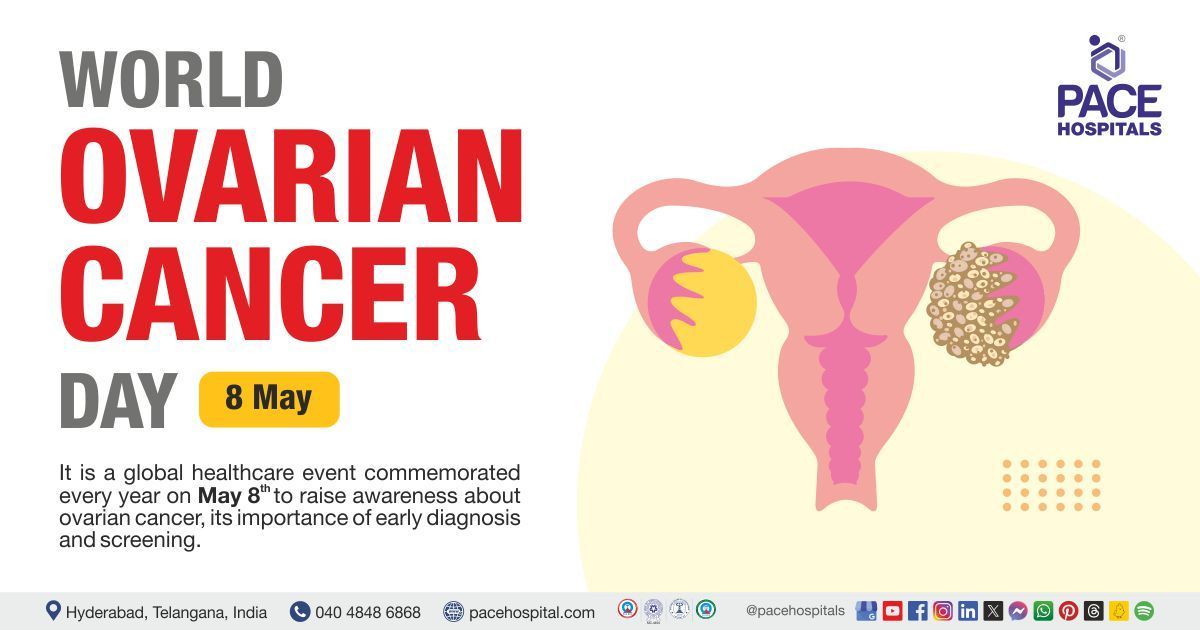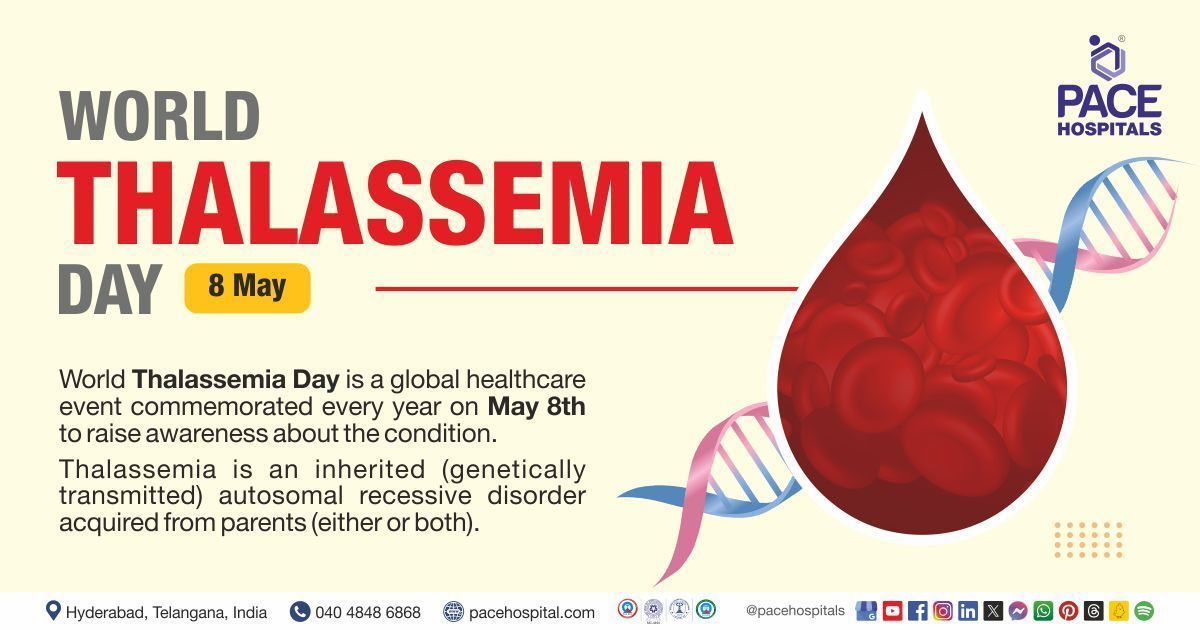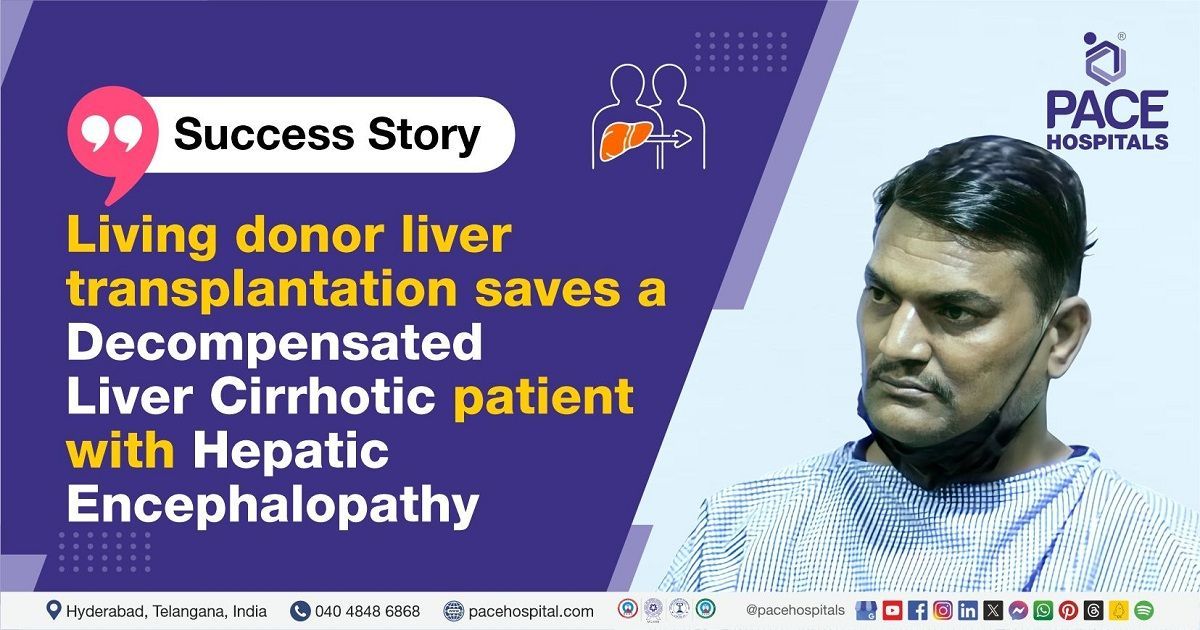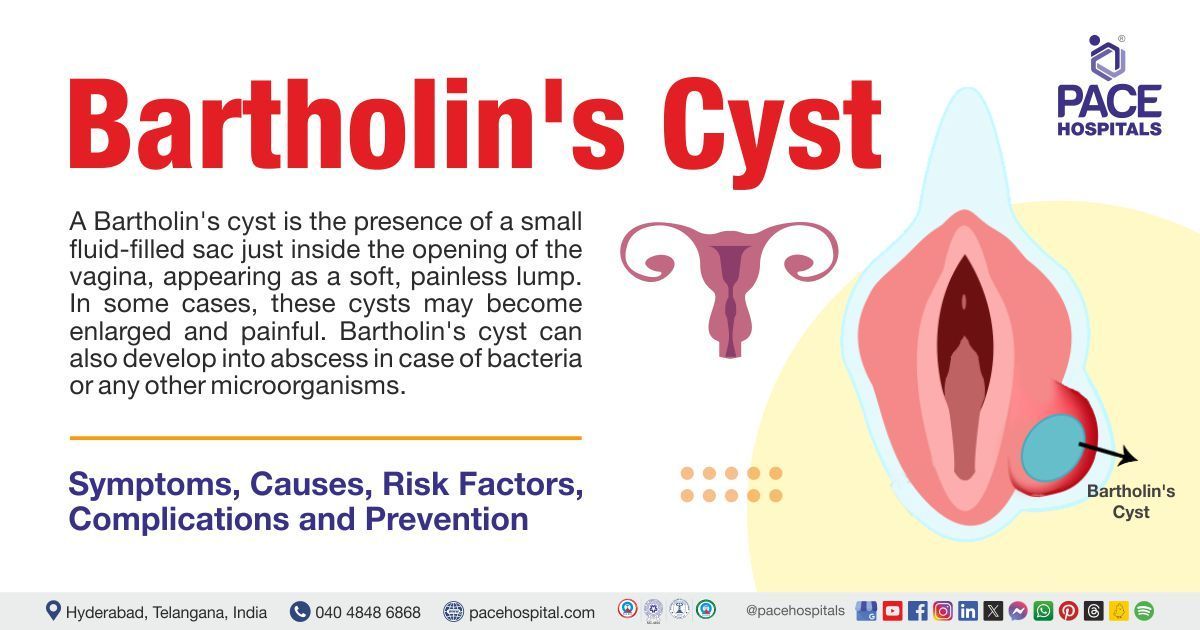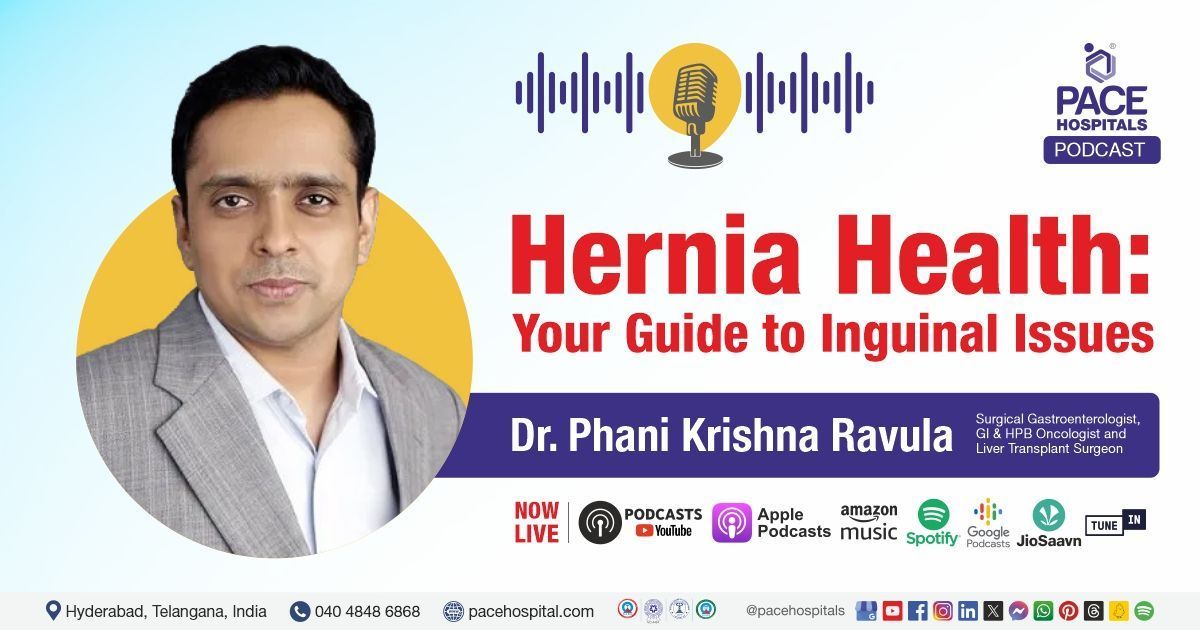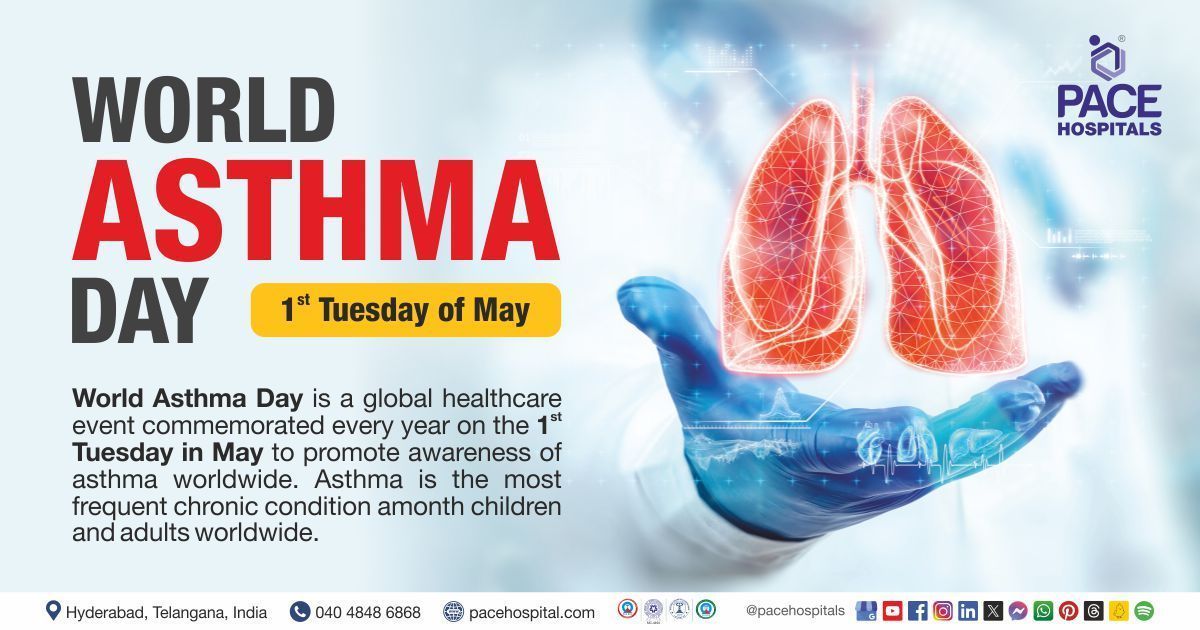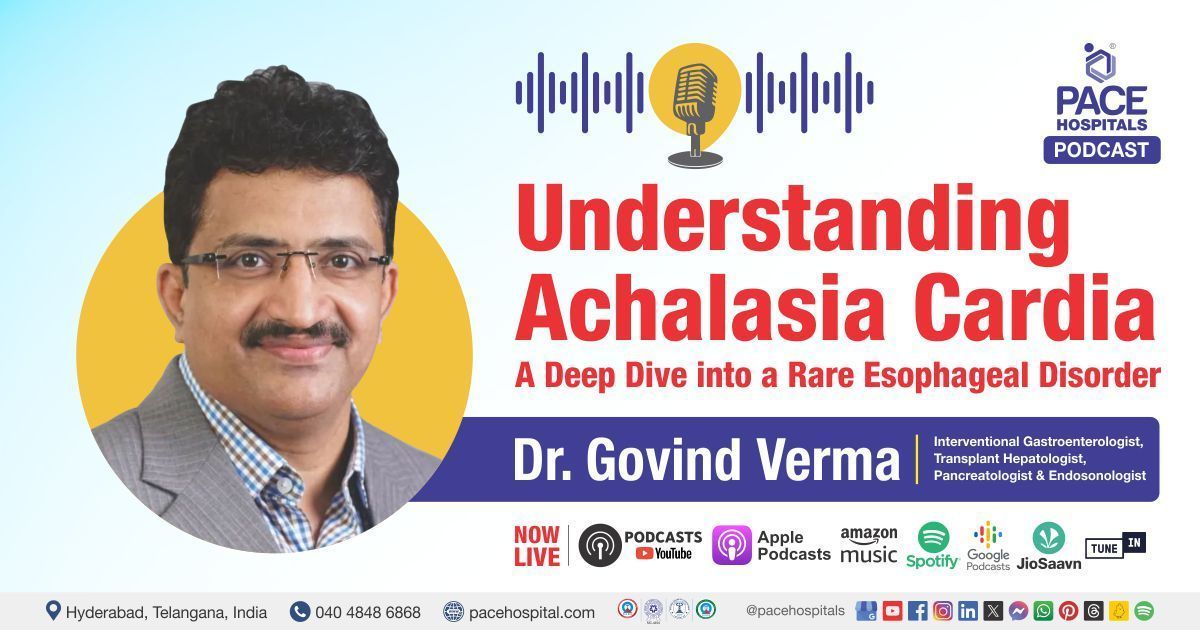Barrett's Esophagus - A Deep Dive into Diagnosis and Management
Listen to
Barrett's Esophagus is a medical condition that occurs when the lining of the esophagus, which is a tube connecting the throat to the stomach, gets damaged due to the stomach acid. In this episode of Barrett's Esophagus podcast, we will unravel how this condition is frequently associated with gastroesophageal reflux disease (GERD), which is characterized by the backflow of stomach acid into the esophagus.
Join the PACE Hospitals Podcast with Dr M Sudhir - Senior Consultant Gastroenterologist and Hepatologist at PACE Hospitals, Hitech City, Hyderabad, India, to unravel the mysteries surrounding this condition, understand its implications, and explore the avenues of prevention and treatment.
-
Transcript
Host: Hello and welcome to PACE Hospitals podcast. Today, we are delving into a fascinating yet concerning topic in gastroenterology - Barrett's esophagus. It's a condition that many might not be familiar with, but it's increasingly recognized in the medical community.
Joining us today, Dr. M. Sudhir, senior consultant gastroenterologist and hepatologist, having wide expertise in treating and managing Barrett's esophagus. In today's episode, he would like to delve into the details of Barrett's esophagus, its causes, symptoms, diagnosis and treatment options, and what individuals can do to manage it effectively.
Dr. M. Sudhir, thank you for joining us at Pace Hospital's Hitec City.
Doctor: Thank you for inviting me. Today. I would like to unravel the mysteries surrounding this condition, understand its implications, and explore the avenues of prevention and treatment. Let's embark on a journey to shed light on Barrett's esophagus and empower ourselves with knowledge about our digestive health.
Dr. M. Sudhir, thank you for joining us.
Can you tell me what exactly Barrett's esophagus means?
Doctor: Normally, the esophagus contains the squamous epithelium up to the GE junction. Now, in some conditions, what happens, the intestine mucosa comes into place with this GE junction, and this is known as Barrett esophagus.
Host: What are the causes and risk factors of Barrett’s esophagus?
Doctor: Generally, it is not fully known what is the actual cause, but Barrett's esophagus is known to occur in long standing gastroesophageal reflux disease, that is, GERD. Why it occurs in such a condition, it's not known, but however, there are other predisposing factors for this occurrence, especially a long standing GERD, an elderly person having GERD, or the patient is smoking, or if the patient is also a heavy person, like an obese person. So these are the predisposing factors for this Barrett's esophagus.
This is very important because Barrett's esophagus is a premalignant condition, and if it's neglected, it can lead to adenocarcinoma of the esophagus.
Host: What are the potential complications of Barrett's esophagus, and how serious are they?
Doctor: Now, what happens in this Barrett's esophagus, in what way it can manifest endoscopically, there are three types of problems which can occur either it could be a polypoidal growth, or it can be a flat lesion, or it can be a deep ulcerative lesion.
So these findings are detected on endoscopy depending on the type of lesion. It is classified with mainly three types, that is polypoidal or cystoid, that's type one and type two is a flat lesion and type three is ulcerated lesion.
Again, there are subtypes in this that we need not go into the detail of it. Now the main purpose of this is because how to treat depends on this type of lesion and then how to manage endoscopically or whether patient requires any biopsy.
Host: How is Barrett's esophagus diagnosed and what tests are involved?
Doctor: The clinical features of Barrett's esophagus clinically it is not detectable, patients don't have any specific symptoms concerning Barrett's esophagus. They have mainly gerd symptoms only. So all patients of GERD has to be screened for the Barrett’s esophagus and then especially the patient is having a long standing gird or patient is a heavy person or patient is not responding to PPIs definitely we have to be looked very closely into the GE junction.
Now what are the places where we have to look, it is 1 cm above the GE junction and we have to look for the prolonged tongue like margins of the mucosa coming into the esophagus, more than 4, very important, but less than 4 cm also we have to be very careful and how to detect this in a more early stage. We have different modalities.
A routine endoscopic screening is important and then we have other endoscopic techniques like NBI, this narrowband imaging, or then we have this FICE i.e flexible image, intensifying color enhancements, then we have other modalities like eye scan also these are other modalities by which we can detect Barrett's esophagus in an early stage and biopsy is very important to make a diagnosis.
There are different stages of Barrett's esophagus that is patients having Barrett's esophagus without any dysplasia, the second is having the patient is having low grade dysplasia. Next is comes as a high GERD dysplasia and the other one is the ICM, that's the intracellular malignancy and the last one is the overt adenocarcinoma, so these are the five stages. Depending on the type of biopsy findings, the treatment will vary and screening is also very important, especially the patient is having a low grid dysplasia, the high GERD dysplasia is more cancerous.
Host: What are the treatment options for Barrett's esophagus?
Doctor: The primary treatment is mainly treating the GERD, and the next thing is surveillance, so catching the patient early is very important. As I told you, Barrett's esophagus without any dysplasia, it doesn't require any treatment, but a periodical endoscopy has to be done. Next comes the patient with a low grid dysplasia. Again, there's no active treatment for this, but a repeated biopsy has to be done.
For example, the patients having low grade displacement on day one, again, we'll have to repeat it after few months again, the repeat biopsy every three years or something like that and then when the patient is having a high grade displacement, definitely will have to intervene endoscopically and this high grade displacement is very highly malignant.
Actually, the malignancy rate can vary in a Barrett's esophagus from 0.12 to 12% So you can imagine the spectrum of the incidence of carcinoma or esophagus in this Barrett esophagus. Now, how do we treat? We have different modalities endoscopically, that is, one is known as APC (argon plasma coagulation). The second one is radio frequency ablation, and the next one comes is submucosal resection or EMR (endo mucosal resection). So these are the different ways of treating, so depending on the type of lesion, we have to treat accordingly.
These are different methods, more technical methods for a common man, but they're all non-invasive and then, even though we do this, repeat biopsy is very important in the follow up of the patients, because what happens there can be recurrence of the dysplasia or malignancy in spite of the treatment, so that's why periodic surveillance is very important.
Host: What role does regular monitoring and surveillance play in managing the prognosis of Barrett's esophagus?
Doctor: Now, when we go to the prognosis or the long term outcome of Barrett's esophagus, as I told you, the first stage doesn't require much of concern, but however, surveillance is important. But subsequently, if the biopsy shows a high grade dysplasia or malignancy, the such patient has to be closely monitored endoscopically, repeatedly, and repeat biopsy has to be taken. And especially when we take a biopsy, we have to go for a four quarter biopsy of one to two centimeter path above the GE junction.
This gives a clear picture of whether patient is having recurrence of Barrett esophagus, This is very premarinated condition, so in such a case we'll have to be very closely monitoring it, so prognosis varies depending on the type of pathology. So we'll have to be very cautious about observing detection as well as in the treatment of this Barrett esophagus.
Host: Can you suggest some preventive tips for gastrointestinal diseases?
Doctor: Let me point out for some important tips for preventing gastrointestinal diseases. Now, the gastrointestinal diseases are so many and so many causes are there, so many infections are there, But mainly we should not forget about the diet related problems because diet is one thing which is very much incrementing factor or rather prosperating or aggravating factors for the existing disease.
Especially we all follow the traditional diet has been changing into the westernized diet, this happens because of all this junk food and then high fatty, high saturated fat and then a lot of spicy and then so all these things are very dangerous to the body.
It may not show immediately, So over a period of time, lot of things can happen, especially if you have seen many. GERD is one important thing, then ulcer acid peptide, this is another one, aggravation of cirrhosis is another one, inflammatory bowel disease also one of the things which can be prostrated or aggravated by this dietary change. So best thing is to follow is our mainly indian diet, don't go for the western diet, avoid fatty foods, avoid this. Cool drinks, aerated drinks, saturated fats, all these things are very detrimental to the human body.
So going for a traditional Hindi, our indian diet is very beneficial for the persons and avoiding all habits like smoking and alcohol this also will aggravate the pre-existing problems and always whenever there's a change in your body habits like change in your body structure or change in any symptoms, always better to consult a doctor before taking a self-medication because people with STD or people with lose motions, they just go to the counter and ask for some medicines.
But such things okay for one or two days it's okay but again, if it's a long term repeat, ultimately you're missing the diagnosis, you're missing the main treatment which are treatable in the early stage, you are neglecting and then the patient can land into severe problems.
Host: Thank you Dr. M. Sudhir for sharing crucial information regarding the Barrett's esophagus to our listeners.
Doctor: I hope this information can be valuable for the listeners that Barrett's esphagus is a serious condition that requires ongoing management and monitoring, especially for those with a history of GERD, early detection and intervention are key to preventing complications such as esophageal cancer.
Host: If any of you have any further questions regarding Barrett's esophagus, please don't hesitate to consult a gastroenterologist and it's crucial to remember that while Barrett's esophagus present challenges, knowledge and proactive management can greatly improve outcomes.
We will see you soon on pace hospital's podcast with another episode. Until next time, stay informed, stay proactive, and take care of your health. Thank you.
Request an appointment
Fill in the appointment form or call us instantly to book a confirmed appointment with our super specialist at 04048486868
Appointment request - health articles
Thank you for contacting us. We will get back to you as soon as possible. Kindly save these contact details in your contacts to receive calls and messages:-
Appointment Desk: 04048486868
Whatsapp: 8977889778
Regards,
Pace Hospitals
Hitech City and Madinaguda
Hyderabad, Telangana, India.
Oops, there was an error sending your message. Please try again later. We will get back to you as soon as possible. Kindly save these contact details in your contacts to receive calls and messages:-
Appointment Desk: 04048486868
Whatsapp: 8977889778
Regards,
Pace Hospitals
Hitech City and Madinaguda
Hyderabad, Telangana, India.
Our Locations
Subscribe to our newsletter and stay updated with the latest health information.
By clicking on subscribe now, you accept to receive communications from PACE Hospitals on email, SMS and Whatsapp.
Subscribe to PACE Hospitals News
Thank you for subscribing. Stay updated with the latest health information.
Oops, there was an error. Please try again submitting your details.
-

Payment in advance for treatment (Pay in Indian Rupees)
For Bank Transfer:-
Bank Name: HDFC
Company Name: Pace Hospitals
A/c No.50200028705218
IFSC Code: HDFC0000545
Bank Name: STATE BANK OF INDIA
Company Name: Pace Hospitals
A/c No.62206858997
IFSC Code: SBIN0020299
Scan QR Code by Any Payment App (GPay, Paytm, Phonepe, BHIM, Bank Apps, Amazon, Airtel, Truecaller, Idea, Whatsapp etc)
Call us at 04048486868
ADDRESS
PACE Hospitals
Hitech City : Beside Avasa Hotel, Pillar No. 18, Hyderabad - 500081
Madinaguda: Mythri Nagar, Beside South India Shopping, Madinaguda, Hyderabad - 500050
QUICK LINKS
Disclaimer
General information on healthcare issues is made available by PACE Hospitals through this website (www.pacehospital.com), as well as its other websites and branded social media pages. The text, videos, illustrations, photographs, quoted information, and other materials found on these websites (here by collectively referred to as "Content") are offered for informational purposes only and is neither exhaustive nor complete. Prior to forming a decision in regard to your health, consult your doctor or any another healthcare professional. PACE Hospitals does not have an obligation to update or modify the "Content" or to explain or resolve any inconsistencies therein.
The "Content" from the website of PACE Hospitals or from its branded social media pages might include any adult explicit "Content" which is deemed exclusively medical or health-related and not otherwise. Publishing material or making references to specific sources, such as to any particular therapies, goods, drugs, practises, doctors, nurses, other healthcare professionals, diagnoses or procedures is done purely for informational purposes and does not reflect any endorsement by PACE Hospitals as such.
